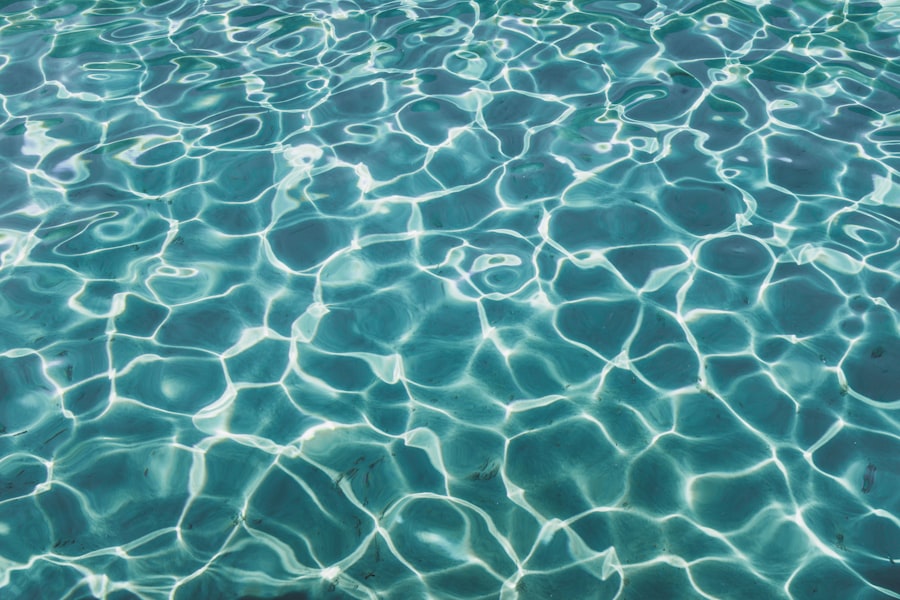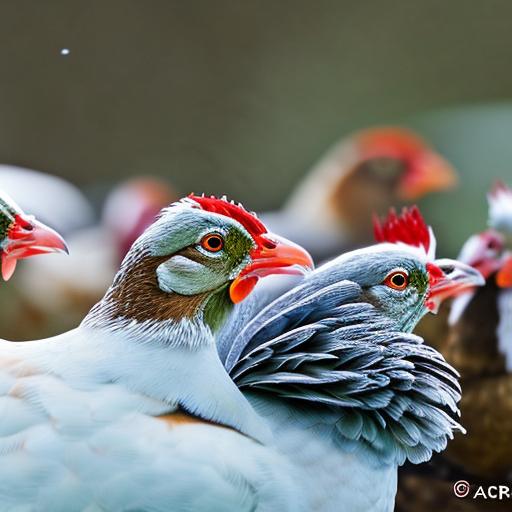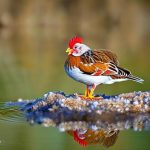During the winter months, it is crucial to provide your chickens with access to liquid water. Water is an essential component of a chicken’s diet and plays a vital role in their overall health and well-being. In this article, we will discuss the importance of water for chickens, the risks of frozen water, common methods for preventing freezing, choosing the right waterer for your climate, insulating your waterer, using a heated waterer, adding salt to your chickens’ water, using solar energy to keep water warm, tips for maintaining your waterer during winter months, and the benefits of providing access to liquid water year-round.
Key Takeaways
- Water is essential for the health and well-being of chickens.
- Frozen water can be dangerous for chickens and lead to dehydration.
- Common methods for preventing frozen water include using heated waterers, insulating waterers, and adding salt to the water.
- Choosing the right waterer for your climate is important to ensure your chickens have access to liquid water.
- Maintaining your waterer during winter months is crucial for the health of your flock.
Understanding the Importance of Water for Your Chickens
Water is a crucial component of a chicken’s diet. It helps with digestion, nutrient absorption, and waste elimination. Chickens need access to clean and fresh water at all times to stay hydrated and maintain their overall health. Without enough water, chickens can become dehydrated, which can lead to a variety of health issues.
Water is also essential for egg production. Hens that are not properly hydrated may lay fewer eggs or produce eggs with thin shells. Providing your chickens with access to clean and fresh water will ensure that they stay hydrated and maintain optimal egg production.
The Risks of Frozen Water for Your Flock
Frozen water can pose significant risks to your flock during the winter months. When chickens do not have access to liquid water, they can become dehydrated. Dehydration can lead to decreased egg production, poor feather quality, reduced immune function, and even death in severe cases.
In addition to dehydration, frozen water can also put your chickens at risk of hypothermia. Chickens rely on their body temperature to stay warm during cold weather, and they need access to liquid water to regulate their body temperature effectively. When chickens drink cold or frozen water, it can lower their body temperature, making them more susceptible to hypothermia.
Common Methods for Preventing Frozen Water
| Method | Description | Effectiveness |
|---|---|---|
| Insulate pipes | Wrap pipes with insulation to keep them warm and prevent freezing. | High |
| Keep faucets dripping | Allow a small amount of water to flow through the pipes to prevent freezing. | Medium |
| Seal air leaks | Seal any gaps or cracks in walls, windows, and doors to prevent cold air from entering. | Low |
| Use heat tape | Wrap pipes with heat tape to keep them warm and prevent freezing. | High |
| Keep garage door closed | Prevent cold air from entering the garage and freezing pipes by keeping the garage door closed. | Low |
There are several common methods for preventing water from freezing in your chicken coop. One method is to use heated waterers. These waterers have built-in heating elements that keep the water from freezing. They are easy to use and require minimal maintenance. However, they can be expensive to purchase and may increase your electricity bill.
Another method is to add salt to your chickens’ water. Salt lowers the freezing point of water, preventing it from freezing at lower temperatures. You can add a small amount of salt to your chickens’ water to keep it from freezing. However, it is essential to monitor the salt levels and not exceed the recommended amount, as too much salt can be harmful to your chickens’ health.
Choosing the Right Waterer for Your Climate
When choosing a waterer for your chickens, it is crucial to consider your climate. Different types of waterers are designed for different climates, and choosing the right one will ensure that your chickens have access to liquid water throughout the winter months.
One option is a heated waterer, which is suitable for colder climates where temperatures regularly drop below freezing. These waterers have built-in heating elements that keep the water from freezing. They are available in various sizes and styles, including hanging and ground-based options.
Another option is an insulated waterer, which is suitable for milder climates where temperatures rarely drop below freezing. These waterers are designed with insulation materials that help keep the water from freezing. They are available in various sizes and styles, including hanging and ground-based options.
Insulating Your Waterer to Keep It From Freezing

Insulating your waterer can help prevent it from freezing during the winter months. One way to insulate your waterer is by using foam insulation sleeves or wraps. These wraps fit around the outside of the waterer and provide an extra layer of insulation to keep the water from freezing.
Another way to insulate your waterer is by using straw or hay. Fill a bucket or container with straw or hay and place your waterer inside. The straw or hay will act as insulation and help keep the water from freezing.
It is important to regularly check the insulation and replace it if it becomes wet or damaged. Wet insulation can lose its effectiveness and may not provide adequate protection against freezing temperatures.
Using a Heated Waterer to Keep Water Liquid
Using a heated waterer is an effective way to keep water liquid during the winter months. These waterers have built-in heating elements that keep the water from freezing. They are available in various sizes and styles, including hanging and ground-based options.
To properly use a heated waterer, you will need access to electricity. Make sure to place the waterer in a location where it can be easily plugged into an outlet. It is also important to regularly check the waterer for any signs of damage or malfunction and replace it if necessary.
To maintain a heated waterer, clean it regularly to remove any debris or algae that may accumulate. This will ensure that your chickens have access to clean and fresh water at all times.
Adding Salt to Your Chickens’ Water to Lower the Freezing Point
Adding salt to your chickens’ water can help lower the freezing point and prevent it from freezing at lower temperatures. You can add a small amount of salt, such as table salt or rock salt, to your chickens’ water to keep it from freezing.
It is important not to exceed the recommended amount of salt, as too much salt can be harmful to your chickens’ health. The recommended amount is typically around 1 teaspoon of salt per gallon of water. Monitor the salt levels regularly and adjust as needed.
Using Solar Energy to Keep Water Warm
Using solar energy to keep water warm is an environmentally friendly and cost-effective option. Solar-powered waterers use the sun’s energy to heat the water and keep it from freezing. They are easy to set up and require minimal maintenance.
To properly set up a solar-powered waterer, place it in a location where it can receive direct sunlight throughout the day. Make sure to position it at an angle that maximizes sun exposure. It is also important to regularly clean the waterer and check for any signs of damage or malfunction.
Tips for Maintaining Your Waterer During Winter Months
Maintaining your waterer during the winter months is crucial to ensure that your chickens have access to clean and fresh water at all times. Here are some tips for maintaining your waterer:
1. Clean your waterer regularly to remove any debris or algae that may accumulate. This will help prevent bacterial growth and ensure that your chickens have access to clean water.
2. Check for leaks or cracks in your waterer and repair or replace it if necessary. Leaks can lead to water loss and freezing.
3. Inspect the insulation on your waterer regularly and replace it if it becomes wet or damaged. Wet insulation can lose its effectiveness and may not provide adequate protection against freezing temperatures.
4. Store your waterer properly during the off-season. Clean it thoroughly, dry it completely, and store it in a dry and protected area.
The Benefits of Providing Access to Liquid Water for Your Chickens Year-Round
Providing access to liquid water for your chickens year-round has several benefits. It ensures that your chickens stay hydrated, which is essential for their overall health and well-being. Hydrated chickens are more likely to lay eggs with strong shells and maintain optimal egg production.
In addition, providing access to liquid water year-round can help prevent dehydration and hypothermia during the winter months. It also ensures that your chickens have access to clean and fresh water at all times, which is crucial for their overall health and immune function.
In conclusion, providing access to liquid water for your chickens during the winter months is crucial for their health and well-being. Water plays a vital role in a chicken’s diet and is essential for hydration, egg production, and overall health. Frozen water can pose significant risks to your flock, including dehydration and hypothermia.
There are several methods for preventing water from freezing, including using heated waterers, adding salt to the water, insulating the waterer, and using solar energy. It is important to choose the right waterer for your climate and properly maintain it throughout the winter months.
By taking the necessary steps to provide access to liquid water for your chickens year-round, you can ensure that they stay hydrated, maintain optimal egg production, and enjoy good health throughout the winter months.
If you’re looking for more information on keeping chickens, you might be interested in an article on Poultry Wizard titled “How to Insulate a Chicken Coop.” This article provides valuable tips and techniques for insulating your chicken coop to keep your feathered friends warm during the winter months. Insulating your coop can also help prevent freezing of water and ensure that your chickens stay comfortable and healthy. Check out the article here for all the details.
FAQs
What causes chicken water to freeze?
During winter, the temperature drops below freezing point, causing the water in the chicken’s waterer to freeze.
Why is it important to keep chicken water from freezing?
Chickens need access to clean water at all times to stay hydrated and healthy. If their water freezes, they may become dehydrated, which can lead to health problems.
What are some ways to keep chicken water from freezing?
Some ways to keep chicken water from freezing include using heated waterers, adding insulation to the waterer, using a heated base, and using a water heater.
What is a heated waterer?
A heated waterer is a waterer that has a built-in heating element that keeps the water from freezing. It is designed to be used during winter.
What is a heated base?
A heated base is a device that is placed under the waterer to keep the water from freezing. It is designed to be used with non-heated waterers.
What is a water heater?
A water heater is a device that is installed in the water line to keep the water from freezing. It is designed to be used with a large number of chickens or in extremely cold climates.
Meet Walter, the feathered-friend fanatic of Florida! Nestled in the sunshine state, Walter struts through life with his feathered companions, clucking his way to happiness. With a coop that’s fancier than a five-star hotel, he’s the Don Juan of the chicken world. When he’s not teaching his hens to do the cha-cha, you’ll find him in a heated debate with his prized rooster, Sir Clucks-a-Lot. Walter’s poultry passion is no yolk; he’s the sunny-side-up guy you never knew you needed in your flock of friends!







